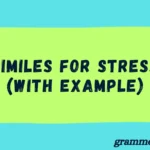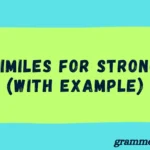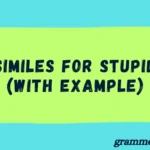Ever tripped over something and wondered if you just fall down or fell down? You’re not alone! The past tense of fall down confuses a lot of English learners because fall is an irregular verb. Unlike regular verbs that simply get an “-ed” ending, fall turns into fell in the past and fallen in the past participle form. Understanding when to use fell down, fallen down, or falling down can make all the difference when you’re trying to speak or write correctly.
In this guide, we’ll break down the verb tenses for fall, compare fall vs fell, and show you exactly how to use each form in real sentences. Whether you’re studying English verb conjugation, trying to avoid common verb mistakes, or just curious about the grammar rules behind phrases like “he fell down the stairs,” we’ve got you covered. Let’s make the confusing world of irregular verbs a little more clear and a lot more practical.
What Is the Past Tense of “Fall Down”?
Let’s start with the basics.
The correct past tense of fall down is:
Fell down
So instead of saying:
❌ I falled down on the ice.
Say:
I fell down on the ice.
Quick Grammar Breakdown:
- Base form: fall down
- Simple past: fell down
- Past participle: fallen down (used with has/have)
It’s an irregular verb, which means it doesn’t just take “-ed” like “walked” or “jumped.” Instead, it changes to “fell.”
Understanding the Phrase “Fall Down”
Before we go deeper into tenses, let’s look at what “fall down” actually means. It’s more than just slipping on a banana peel.
Literal meaning:
- To drop to the ground or a lower level due to gravity.
- “The vase fell down from the shelf.”
- “I saw her fall down the stairs.”
- “The vase fell down from the shelf.”
Figurative meaning:
- To fail or not meet expectations.
- “The system fell down under pressure.”
- “He fell down on his responsibilities.”
- “The system fell down under pressure.”
💡 Tip: “Fall” means to drop, but “fall down” adds a sense of direction or impact. It emphasizes the motion downward.
Why the Past Tense of “Fall Down” Is “Fell Down”
The confusion starts because English has regular and irregular verbs. While regular verbs simply add “-ed,” irregular ones don’t follow the rules.
“Fall” is irregular:
- Present: fall
- Past: fell
- Past participle: fallen
So when you’re describing something that already happened, you say:
“I fell down the hill yesterday.”
If you say “falled down,” it’s grammatically incorrect.
Grammar Table – Forms of “Fall Down”
Here’s a simple table to help you remember the correct tense forms of “fall down”:
| Tense | Form of “Fall Down” | Example Sentence |
| Present Simple | fall down | I often fall down when I wear high heels. |
| Past Simple | fell down | He fell down during the soccer match. |
| Present Perfect | have/has fallen down | She has fallen down the stairs before. |
| Past Perfect | had fallen down | They had fallen down three times by noon. |
| Future | will fall down | You will fall down if you’re not careful. |
Sentence Examples Using “Fall Down” and “Fell Down”
Let’s look at both forms in action, so you can clearly see the difference.
Sentences Using “Fall Down” (Present Tense)
- I always fall down when I rush.
- Watch your step—you might fall down!
- People sometimes fall down when sidewalks are icy.
- Kids often fall down while learning to walk.
Sentences Using “Fell Down” (Past Tense)
- She fell down the stairs last night.
- He fell down during the marathon but kept running.
- I fell down in the snow and lost my phone.
- The tree fell down in the storm.
Notice how “fell down” always refers to a completed action in the past.
Common Mistakes and Confusions
English learners (and even native speakers) often mix up these forms. Let’s clear things up.
Mistake #1: Using “falled” instead of “fell”
- ❌ She falled down the steps.
- She fell down the steps.
“Falled” is not a word.
Mistake #2: Confusing “fallen down” with “fell down”
“Fallen down” is the past participle. Use it with has/have/had.
- She has fallen down the stairs many times. (Correct)
- ❌ She fallen down the stairs. (Wrong – needs “has” or “have”)
Mistake #3: Using “fall down” and “fall” interchangeably
They’re not always the same.
- “Fall” is general.
- “Leaves fall in autumn.”
- “Leaves fall in autumn.”
- “Fall down” suggests direction or collapse.
- “The baby fell down after taking a few steps.”
Fall Down vs Trip, Collapse, Slip – What’s the Difference?
Let’s compare some similar terms people confuse with “fall down”:
| Phrase | Meaning | Example |
| Fall Down | Drop to a lower level by accident | He fell down while climbing the ladder. |
| Trip | Catch one’s foot causing a stumble or fall | She tripped over the rug. |
| Slip | Lose footing due to a slick surface | I slipped on the wet floor. |
| Collapse | Sudden structural or body failure | The building collapsed after the explosion. |
While fall down is often caused by tripping or slipping, it’s more general and can be used in broader contexts.
Origin and History of the Phrase “Fall Down”
The verb “fall” comes from Old English “feallan,” which meant “to drop from a height.” Over centuries, “fall” evolved in both meaning and grammar.
The phrase “fall down” emerged in Middle English, combining “fall” with the directional particle “down.” Together, it emphasized the downward motion more than “fall” alone.
In modern English, “fall down” is classified as a phrasal verb, which means its meaning is slightly more specific than the root verb alone.
Synonyms and Alternatives for “Fall Down”
Knowing some alternatives can make your writing more vivid and less repetitive. Here’s a breakdown of synonyms for both the present and past tense.
Present Tense Synonyms for “Fall Down”
- Tumble – She tumbles down the hill.
- Slip – I slip on icy roads.
- Trip – You trip over that cable.
- Stumble – They stumble while hiking.
- Lose balance – I lose balance easily on roller skates.
Past Tense Synonyms for “Fell Down”
- Collapsed – The chair collapsed under his weight.
- Tumbled – He tumbled down the hill.
- Stumbled – She stumbled and fell.
- Tripped – I tripped over the sidewalk crack.
- Toppled – The tower toppled after the wind hit.
These words are useful for writing stories, reports, or even casual conversations with more color and variety.
Quick Quiz: Test Your Understanding
Choose the correct form of the verb in each sentence:
- Yesterday, she ___ down while running.
- a) fall
- b) fell
- c) fallen
Answer: b) fell
- a) fall
- I have ___ down these steps before.
- a) fell
- b) fallen
- c) falled
Answer: b) fallen
- a) fell
- Watch out! You might ___ down.
- a) fall
- b) fell
- c) fallen
Answer: a) fall
- a) fall
- He ___ down and twisted his ankle.
- a) fell
- b) falled
- c) fall
Answer: a) fell
- a) fell
Final Thoughts: Mastering “Fall Down” and “Fell Down”
So, next time you talk about someone taking a tumble, you’ll know exactly what to say—he fell down, not he fall down! Mastering the past tense of fall down means getting comfortable with irregular verbs like fall, fell, and fallen. These forms might not follow the typical verb conjugation rules, but with practice and real-life examples, they become second nature.
FAQs About “Fall Down” and Its Past Tense
Is “falled down” ever correct?
No. “Falled” is not a word in English. The correct past tense is “fell down.”
Can “fallen down” be used instead of “fell down”?
Only in perfect tenses:
- “She has fallen down many times.”
Not: “She fallen down last night.”
What’s the difference between “fall” and “fall down”?
“Fall” is more general.
“Fall down” usually involves a sudden movement downward or impact.
Is “fall down” only used for people?
No. Objects, structures, and even systems can “fall down.”
Examples:
- The fence fell down in the storm.
- The website fell down under heavy traffic.
Is “fall down” a phrasal verb?
Yes. It’s a phrasal verb where “down” adds a direction or emphasis to the action.

Emma-Brooke is the passionate voice behind GrammerHome.com, where she simplifies English grammar for learners across the globe. With a deep love for language and years of experience in grammar instruction, Emma specializes in breaking down complex rules into clear, easy-to-understand tips.




